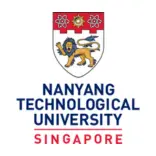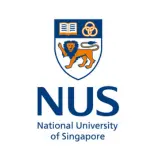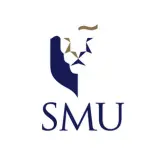Study in Singapore
– Aara Consultancy can help you choose the right country and program for your Study Abroad needs and goals, and guide you through the entire application process.
Why Study in Singapore?
1. Financial Hub of Entire Asia Pacific region: Singapore is the leading financial centre in the Asia-Pacific region, which provides a plethora of job opportunities in management and financial domains. It ranks third in the Global Financial Centre Index, trailing only New York and London. Also, being home to 2500+ subsidiaries of large MNCs and a leading location for regional headquarters in the Asia-Pacific, the country is bound to flourish in career opportunities.
2. Affordable Education: The cost of higher education in Singapore is affordable for international students compared to countries like the USA, UK, Canada etc. Many programs in Singapore offer scholarships and grants that allow you to complete your studies at lower costs.
3. English-speaking courses and country: Singapore, being home to multicultural diversity, has English as the primary spoken and written language in universities as well as in professional settings. There are four official languages in Singapore – English, Mandarin Chinese, Malay, and Tamil – but English is the working and common language for government, education, and business. This makes Singapore an extremely student-friendly country for students worldwide, especially Indians.
4. Globally recognized degrees and Institutions: Singapore is home to world-class private and public universities that provide the best infrastructure and quality of education. Some of these universities have associations with universities in the UK and USA, providing a global edge to their masters, MBA and Undergraduate programs. Singapore’s leading universities include Nanyang Technological University (NTU), National University of Singapore (NUS) and Singapore Management University (SMU), all of which rank under the top 500 in world rankings.
5. Safe and developed nation: Singapore is known to have strict laws that create a safe space for locals and foreigners. Furthermore, Singapore’s robust infrastructure and efficient transportation network facilitate seamless exploration for international students within the country
Top universities in Singapore

Nanyang Technological University (NTU)
NTU is a research-intensive public university with 33,000 undergraduate and postgraduate students in various disciplines. It is also home to world-renowned autonomous institutes– the National Institute of Education, S Rajaratnam School of International Studies and Singapore Centre for Environmental Life Sciences Engineering – and various leading research centres such as the Earth Observatory of Singapore, Nanyang Environment & Water Research Institute and Energy Research Institute @ NTU (ERI@N). Known for its sustainability, NTU has achieved 100% Green Mark Platinum certification for all its eligible building projects. Apart from its main campus, NTU also has a medical campus in Novena, Singapore’s healthcare district.

National University of Singapore (NUS)
NUS is Singapore’s flagship university, which offers a global approach to education, research and entrepreneurship spread across three campuses and 16 colleges housing 40000 students from 100+ countries. The institution provides a rigorous, broad-based curriculum underscored by innovative academic programmes, including student exchange and entrepreneurial internships at 12 NUS Overseas Colleges and double, joint, and concurrent degree programmes with some of the world’s best universities. Researchers in NUS’s 37 university-level research institutes focus on themes that include energy, environmental and urban sustainability; treatment and prevention of diseases common among Asians; active ageing; advanced materials; and risk management and resilience of financial systems.

Singapore Management University (SMU)
A premier university in Asia, the SMU is internationally recognised for its world-class research and distinguished teaching. Established in 2000, SMU’s mission is to generate leading-edge research with global impact and to produce broad-based, creative, and entrepreneurial leaders for the knowledge-based economy. SMU’s education is known for its highly interactive, collaborative, and project-based approach to learning. It is home to over 12,000 students through its eight schools. SMU’s city campus is a modern facility located in the heart of downtown Singapore, fostering strategic linkages with business, government, and the wider community.
Admission Requirements to Study in Singapore
- 12th/undergraduate degree with 1st class Honours (2nd Upper Honours can be considered on case to case basis)
- GRE/GMAT/SAT
- TOEFL/IELTS for English language proficiency
- All academic documents for studies done to date
- Statement of purpose outlining goals
- At least two letters of recommendation
- Other certifications and relevant documents as required based on program requirement
Popular Subjects
Business and Management
Banking and Finance
Data Science/Computer Science
Information Technology
Budget Requirement for Study in Singapore
- Cost Estimation:
The annual fee for UG courses is 20000-45000 SGD
The yearly fee for PG courses is 30000-60000 SGD
The annual fee Living expenses and other expenses are 10000-25000 SGD
- Additional Resources:
Please feel free to call Aara Consultancy Team for Education Loan Assistance.
Frequently Asked Questions
For students attending an approved university and pursuing a full-time degree (not semester or year exchange), up to 16 hours per week of work are permitted.
There are two intakes per year in January and August. Both intakes will consider both full-time and part-time applicants. Applications open in December for the August Intake and in July for the following year’s January Intake.
IELTS/TOEFL is usually compulsory but can be waived by the particular school based on the student’s profile. Generally, other exams like GRE/GMAT/SAT are optional but highly recommended for top universities. Shortlisted applicants, especially those who applied for the research scholarship, may be required to attend an interview. Wherever possible, the interview will be held in the applicant’s country. The usual periods of overseas interviews will be March/April for the August intake and August/September for the January intake.
